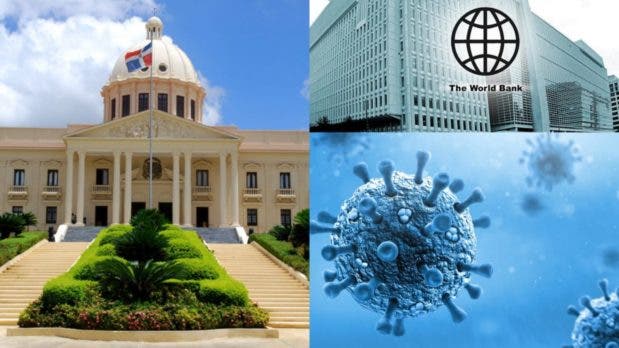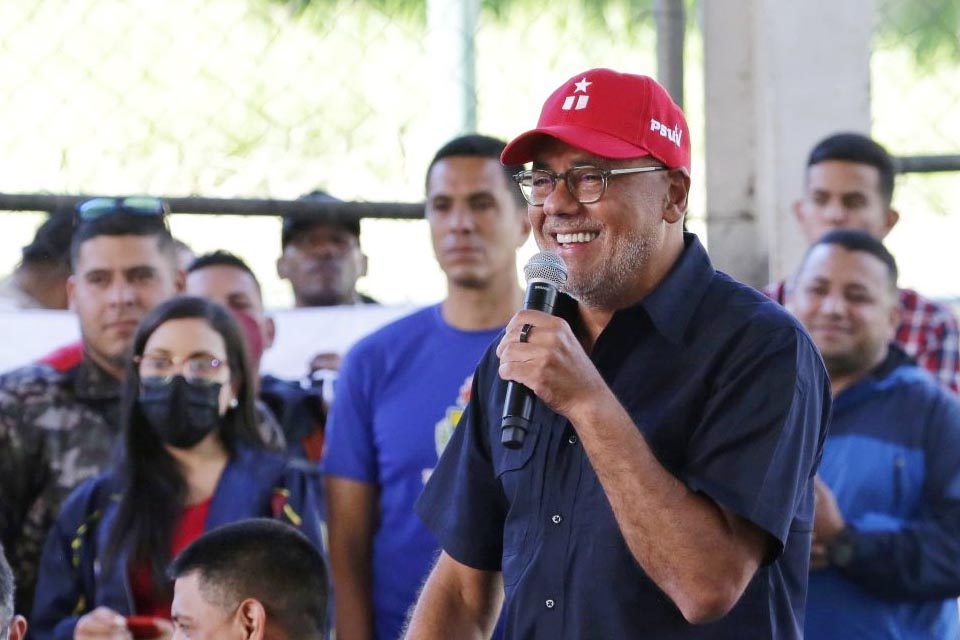Democracy continues to appear, here and elsewhere, vulnerable to the onslaught of economic crises that reach down to the social base.
Located in the favorable balance of behaviors in its economy in 2022, Dominican Republic would have reasons to trust in the continuation of growth with fiscal and financial stability that reflect the Domestic Gross Product and other indices for 2023 which, in any case, comes with a global slowdown forecast that the International Monetary Fund described as “broad-based” with 50% reduction from previous expansion. The progress of the productive apparatus, the goals of social welfare and the political climate in which the pre-electoral disqualifications of the opposition are intensifying would be in challenge.
Touristically thriving, and causing admiration in multilateral organizations that monitor the region in which this country surpasses the others in resilience, in the medium term it would be necessary to escape, in a difficult test, the persistent consequences of the covid-19 crisis. Experts predict that it would take years to disappear with the addition of a war with an unpredictable end that could renew its destructive intensity on world supply logistics.
International analysts place the country in the context of the hemispheric area with the greatest development deficit, with serious housing problems, very palpable locally, and with a high proportion of the Dominican youth population segment that “does not work or study” without it working to solve their problems. marginalization of a state educational system that was shipwrecked under the inclemencies of the pandemic and the failure of official plans to mitigate them. The assessment of the education minister who took office after the worst leaves no doubt: 4% funds gone to the garbage can with shared guilt.
The conclusions reached by international organizations on the region of the Caribbean is that the debacle brought by the spread of the virus SARS-CoV-19 and its variants were too much adversity for an area of the world that, when the infections arrived, experienced decades of poverty, challenged for a long time by structural, educational deficiencies and the use of fiscal resources. For all this, in his opinion, the solutions would have to require political reforms, something that would collide head-on with other hurricane winds: those of re-election.
political descent
The loss of confidence in the parties and in democracy was reflected in opinion studies in the country after the dramatic cancellation of the 2020 municipal elections due to failures that made them vulnerable to fraudulent maneuvers, and due to the emergence of files that attributed scandalous corruption. to high spheres of Government former. When the uncovering of the administrative horrors that in ten years of differentiated party hegemonies squandered a high proportion of 4% for education was yet to be known, an administrative collapse attributable to the way of acting of politicians in a general sense.
In proportions that tend to remain, a survey after what happened before, sponsored by the Institute for Social Research for Development found that 73% of the citizens consulted showed degrees of dissatisfaction with politicians labeled as “bad or very bad”, some adverse qualifications that were also connected with the result of economic policies that, despite being macroeconomically successful, did not have a favorable and general citizen effect.
In its description of the country’s social reality from less than a year ago, the World Bank emphasized the “solid performance of the economy” which, in its opinion, would continue in 2022 but “diluted” by price rises with inflation of 9 .4 percent just six months ago with the war in Ukraine still on.
He commented that “This has caused an expansion of the fiscal deficit due to the unexpected subsidies that have been necessary to counteract the increase in prices.”
A social expense that unbalanced public finances, although at that time it did not prevent poverty from increasing by 2.4 points and that at the apparent end of the pandemic an employment rate of 59.9% was registered, 1.1% below pre-pandemic levels and an informality rate increased by four points with all that this means for the workforce marginalized from the protection provided by institutional wage regulations and mandatory affiliation to Social Security with health care and individual accumulation retirement savings.
critics of the charge
Seven months after the third anniversary of the current management of Government the results at the level of public opinion of his second full year that made the political scientist Rosario Espinal remember the media chief of Condition that: “people expect results more than announcements” because at that time purchasing power was beginning to be diminished by inflation and “monetary measures to deal with it slow down economic growth,” he added.
The analyst also maintained that public finances were precarious to cover subsidies and development programs (generally supported by a tenacious public debt) while, in her opinion, the dominant issues in the country were inflation and crime.
By paying attention today to all sides, it is confirmed that these evils persist with a supreme government command that, in its desperation to reduce citizen insecurity, ignores it while the extrajudicial executions that the former Attorney General of the Republic Francisco Domínguez Brito recently described as increasing of “State crimes”, one of the favorite methods of the generalissimo of barbarism Raphael Trujillo.
In the “audit” that the Alianza País party applied to the first half of the current period at that time, some negative points appeared similar to those that many foist today: “citizen insecurity, high cost of food, rise in the bill of the electricity and crisis in hospital services and the educational system”.
The organization led by Guillermo Moreno He considered that at that time in his performance, the Government was wasting the opportunity to implement an economic model that would guarantee a fair distribution of social wealth.
For the also opposition leader (PLD) Juan Ariel Jiménez, what happened then was that the president Luis Abinader he showed “obsession” with the previous administration, attributing errors to it instead of “implying that it seeks solutions to national problems.”
Official version
It is probable that from the pinnacle of power the outlook seems to indicate that solutions have actually been sought in light of the recent statement by the Minister of Economy, Planning and Development Pavel Isa Contrerasin the sense that in 2023 public investment revolves around housing, drinking water, sanitation and health and that synergies are articulated between the different institutions to achieve results in priority areas.
For this key technocrat of the Condition, the country’s main challenge is to maintain growth with stability and he maintained that work is being done to achieve it with the purpose of achieving greater social well-being. “The fundamental objective is to translate stability and growth with well-being for people in a context where there are very few resources.” In statements through the Top Latina radio station, the senior official described the border area as one of the State’s priorities to reduce gaps and achieve social and territorial cohesion.
From a broader stage the Government defended itself against criticism from opposition forums, pointing out that the economy grew by 5% in the year just concluded, a period in which public investment was around 158 billion pesos, equivalent to 2.5% of the GDP with which 450 public works projects were developed, 79 more than in 2021.
Pavel Isa considers that the favorable progress of the economy is partly due to optimism and the participation of small and large national businesses. In the same direction of giving prominence to the official enforcement actions, the Minister of Finance, José Manuel -Jochi- Vicenteargued that the Government has acted with a prudent management of spending, giving a rapid response to damage left by natural phenomena on the country and that in 2022 it was able to increase subsidies by 1.4% of GDP to face inflation caused by the war Russia-Ukraine.
Despite the positive view at high official levels, Dominican Republic lives in a time preceded by deplorable results of sociological studies, among which stood out the one signed by the social researcher Ramonina Brea warning about the Latin American phenomenon of “disbelief in political parties and the decline of traditional organizations of public life such as unions and professional associations.















